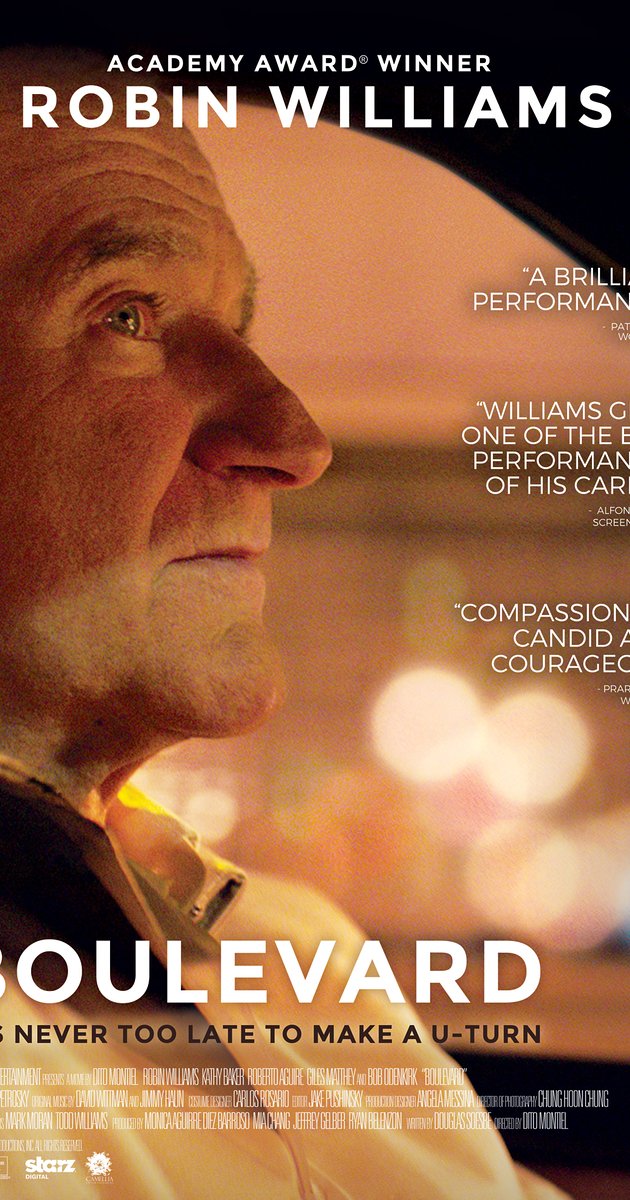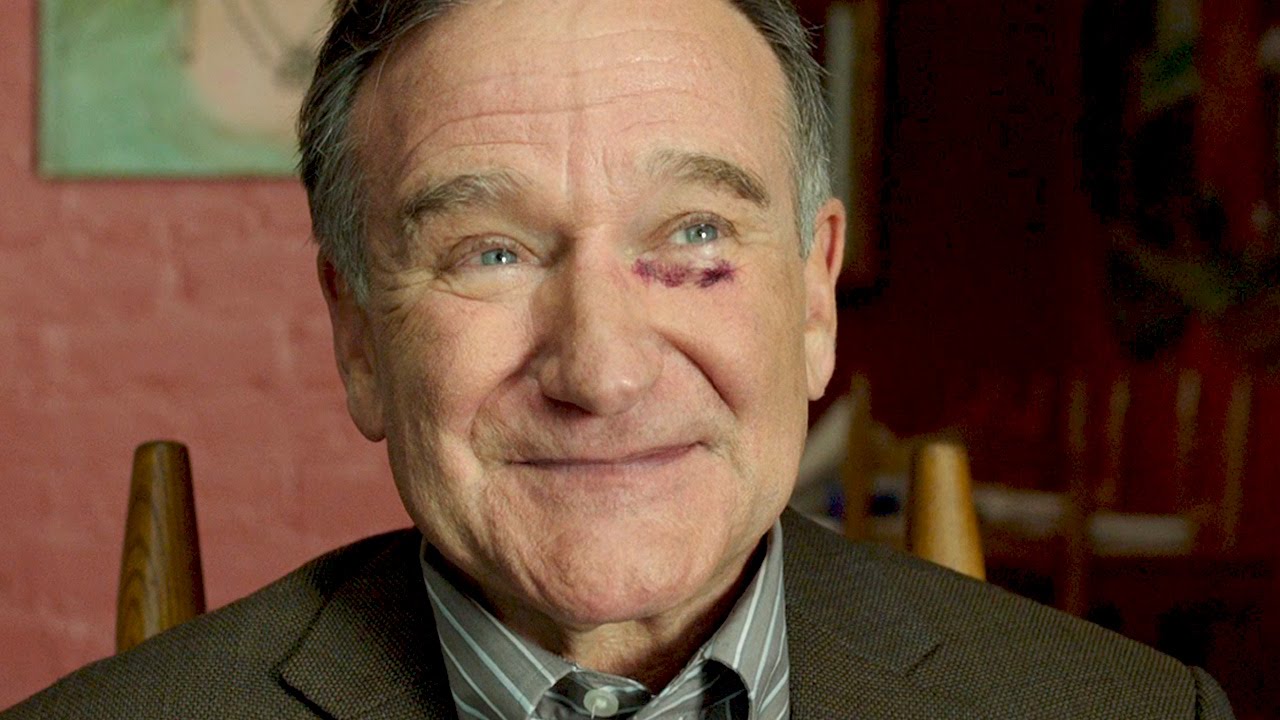Entertainment News – The news of a celebrity’s untimely death always lends his or her unreleased work new meaning. We pry outstanding projects for evidence of instability, seeking clues so we can chastise ourselves for not pinpointing signs of deterioration, or perhaps for ignoring them when we do.
 That phenomenon — along with the general toll that fame can take — is examined in documentaries released this year about Kurt Cobain and Amy Winehouse, but the more recent death of Robin Williams still has us searching for something to explain his absence.
That phenomenon — along with the general toll that fame can take — is examined in documentaries released this year about Kurt Cobain and Amy Winehouse, but the more recent death of Robin Williams still has us searching for something to explain his absence.
We won’t find those answers in “Boulevard,” the final live-action role of his career, but the indie drama does take on new meaning in light of what we know about Williams’ suicide. Opening in limited release on Friday, “Boulevard” is the story of Nolan Mack, a closeted 60-year-old who’s held the same humdrum bank job for 26 years. He and his longtime wife (Kathy Baker) sleep in separate bedrooms. They share a certain love but little intimacy outside of discussing literature and watching TV together. Williams plays Nolan as impossibly sad, with a timid affect and heartbreaking complacency. But Nolan comes alive, to a degree, after nervously picking up Leo (Roberto Aguire), a troubled gay hustler who approaches his car one night. To Leo’s befuddlement, Nolan doesn’t want sex. They go to a motel where Nolan pays handsomely just to look at him shirtless and converse. Nolan’s repressed sexuality is awakened and he becomes hooked on Leo, concocting lies for his wife so he can share the young man’s company and assist with his finances.
Nolan might as well have lived his days as someone else, because the film makes it clear he’s never been his own person. Some questioned a similiar strife in Williams, whose lifelong manic ebullience was upended by the circumstances of his death. The narrative of Williams’ career will now forever be defined by tears-of-a-clown assessments. Meeting Leo ignites a second life in Nolan, but Williams’ fate denied him that opportunity.
Hearing “Boulevard” director Dito Montiel recall his time with Williams makes the actor’s death seem all the more improbable. Montiel said the impov maestro had no airs of someone who’d spent 37 years of his life on film and television sets. On the final night of filming, in late 2013, Williams was struggling to find the rhythm of a scene where Nolan confronts Leo at the latter’s apartment. In a movie full of quiet moments, one of its loudest scenes — the dramatic equivalent of the outsize work for which Williams was known — proved most difficult. Williams was dogged.
“We were having a hard time getting the scene,” Montiel, who directed “A Guide to Recognizing Your Saints” and “The Son of No One,” said. “With movies, it’s weird — you shoot all night, so you take a lunch at midnight. And he would say, ‘Well, let’s take a walk for an hour and talk about this scene.’ So you’re walking through the streets of Nashville at 1 in the morning with Robin and talking about a scene. He cared so much in a lot of different ways. You’ve got a guy who’s as famous as he is and he still wants to make sure he gets the next scene right in this little indie movie. That’s a special quality.”
“I can’t remember the last time we spoke, but he’d leave me a bunch of voice messages and you just save them because they’re from Robin Williams,” Montiel said. “You make a movie and it’s like a weird circus life. You go into this weird world for three or four months, you’re attached at the hip to all these people and you talk 100 times a day and you call and you obsess and you’re trying to conjure up the deepest emotions. And then at the end everyone goes home. Then when you hear things like [Williams’ death], it’s kind of like life sped up.”
Knowing that Williams was so dedicated to his craft mere months before taking his life only further complicates the particulars of his death, but “Boulevard” makes sense in the scope of his career. For someone who gravitated toward serious parts as his critical favor waned slightly in the late ’90s and early 2000s, “Boulevard” is aligned with the layered character studies that bookended his comedic work. Moreover, Williams seemed interested in stories of hidden identities, as explored over the years, to varying degrees, in such films as “The Fisher King,” “Awakenings,” “Hook,” “Mrs. Doubtfire,” “The Birdcage,” “Good Will Hunting,” “Insomnia,” “One Hour Photo” and “The Face of Love.”
Williams has one more film on the horizon, voicing a dog in British sci-fi comedy “Absolutely Anything,” directed by Terry Jones. “Boulevard” is the last time we’ll see his face, but it’s fitting that Williams will go out on a lighthearted note, the way he came in and the way he’ll be remembered. Even if the actor receives the probing documentary treatment, however, we may never stop examining the tears that came between the laughter, because that’s what we do to treasured celebrities. In this case, there is comfort in how invested he was in his work and the genial spirits he maintained during some of his final days. If for years he buried his depression in the name of humor, Williams likewise minimized his comedic urges on the more serious “Boulevard” set.
“We’ve all grown up with 30 different Robin Williams characters,” Montiel said. “You never know what you’re going to get, but you know it’s going to be special. There’s something really exciting about all versions of Robin, but the quiet version really excites me. We thought, ‘Wow, it’s so weird.’ We all have this perception of him as the guy on David Letterman going crazy, and Nolan probably wants to jump out of his seat, just like we probably think Robin does, and he can’t. He has to sit there and suppress it, and I thought, ‘Oh, that’s going to be fun to watch.'”
“Boulevard” opens in limited release on July 10 and expands to more theaters on July 17.
By Matthew Jacobs, Huffington Post

